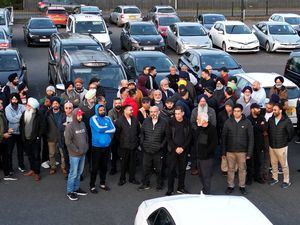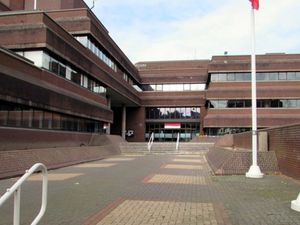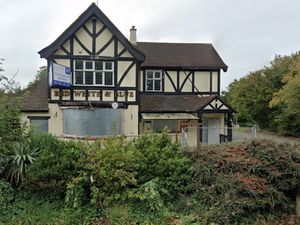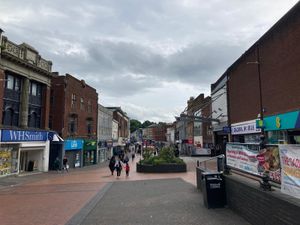Cancer awareness bus welcomed as over 100 people visit in Wolverhampton city centre
More than 100 people took the opportunity to get their health checked when the Black Country Cancer Bus came to Wolverhampton earlier this month.
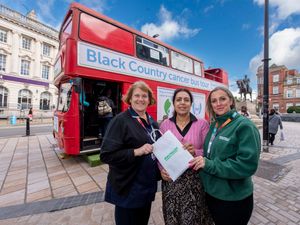
Organised by the NHS Black Country in partnership with the City of Wolverhampton Council’s public health team the cancer bus, situated in Queen Square was an opportunity for people to meet and talk with a range of clinicians about how to check for symptoms of cancer, the support services available and what to do if they are concerned.
They were given information on the three main NHS cancer screening programmes of breast, bowel and cervical, including when people will be invited and what is involved in the process.
Macmillan Cancer Support also attended and offered support for people living with and beyond cancer.
Councillor Jasbir Jaspal, the City of Wolverhampton Council's cabinet member for adults and wellbeing, said: "We were pleased to be able to work with the NHS in the Black Country to bring the bus to Queen Square, and delighted over 200 people came along to either have a health check or find out more about cancer and the cancer screening process."
Dr Mona Sidhu, medical director of primary care for the NHS Black Country Integrated Care Board,added: “Early detection is the best form of defence against cancer and it’s vital that people know the signs and symptoms to look out for. That's why initiatives like the cancer bus tour are so important.
"They give us the opportunity to have one-on-one conversations with people who may not realise they are at risk, who may not recognise potential symptoms or may feel unable to act on them or are too fearful to.
“It was fantastic to see so many people come forward so thank you to everyone who paid us a visit. And please remember, if you notice something that isn’t normal for you or isn’t going away, it’s important to speak to your GP.
"It probably won’t be cancer. But if it is, spotting it early can make a real difference.”
:

